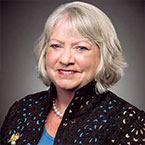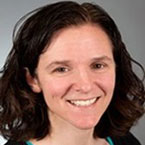By: Karen Remley, MD, MBA, MPH, FAAP & Michelle Gurvitz, MD, MS, FACC, FAAP
Having a baby is a special, life-changing experience. But it can also come with unique challenges, especially if your baby was diagnosed with a heart defect before or after birth.
After a heart defect diagnosis, parents and caregivers must learn how to care for a child with special health care needs. This new world of surgeries, procedures, specialists, appointments, and medications can be overwhelming. It is not uncommon for you to experience
emotions ranging from sadness, to fear, to guilt and to confusion.
It helps to remember that you are not alone. There are many resources available to help care for a child with a heart defect, from birth to adulthood. Read on to learn more.
Informational resources: becoming an expert and an advocate
Having the right information can help you make the best possible choices about your child's cardiac care and treatment. Ask questions and learn about your child's diagnosis, medications and treatment plan.
Tools you can use
Developmental resources: helping your child thrive
Children with heart defects may not meet
developmental milestones at the same time or do as well in school as their peers without heart defects. Some may also have to miss school at times for appointments, testing or procedures.
Early intervention can have a significant impact on a child's ability to learn new skills and overcome challenges. These services and support include special education, speech therapy and physical therapy.
You know your child best. Talk to your healthcare provider if you have concerns about the way your child plays, learns, speaks, acts or moves.
Tools You Can Use
Healthcare resources: plan for your child's transition to adult care
Teens with heart defects may face unique challenges as they transition from childhood to adulthood. They need to learn new skills, start to gain independence, and interact with the doctor on their own. Eventually, they must prepare to transfer from a pediatric doctor (whom they may have known all their lives) and pediatric health system to an adult doctor and adult health system.
It is especially important for people with heart defects and their families to begin planning for this transition during childhood. This will help them lead healthy and independent lives as adults.
Tools you can use
Emotional support resources: connecting with others living with heart defects
It is not unusual to feel a sense of isolation when you find out your child or family member has a heart defect. Talking with people who have been through similar experiences may help.
Ask your healthcare provider or social worker to refer you to community support groups or put you in touch with another family that has gone through similar situations. There are also several national organizations that can provide helpful resources for families and caregivers.
Tools you can use
Remember
Most children with congenital heart defects will go to school, participate in hobbies, sports and other activities in their community. Most of these children will learn and grow much like other kids their age. It is important to remember that people with congenital heart defects continue to require lifelong care from a congenital cardiac specialist to maintain their health and address any issues. For example, you'll need to work with your child's health care team to address nutritional needs, exercise, and cardiac specific risk factors that may change at different points in your child's life.
Make sure to ask the doctors, nurses, and other medical professionals about your child's heart defect now, and what to expect in the future. From an early age, encourage your child to ask their pediatric cardiologist and other healthcare providers questions as well. This will help your child feel more in control of their health, and that confidence will grow and continue throughout their lives.
More information
About Dr. Remley
 Karen Remley, MD, MBA, MPH, FAAP, is the Director for the
National Center on Birth Defects and Developmental Disabilities (NCBDDD). She has more than 30 years of experience in public health and health care, with leadership roles in the public and private sectors. Her "north star" has always been children and families, and she has shaped her career around helping every family have the best opportunity for health and well-being.
Karen Remley, MD, MBA, MPH, FAAP, is the Director for the
National Center on Birth Defects and Developmental Disabilities (NCBDDD). She has more than 30 years of experience in public health and health care, with leadership roles in the public and private sectors. Her "north star" has always been children and families, and she has shaped her career around helping every family have the best opportunity for health and well-being.
About Dr. Gurvitz
 Michelle Gurvitz, MD, MS, FACC, is an Associate Professor of Pediatrics at Harvard Medical School and a staff cardiologist with Pediatric Cardiology and the Boston Adult Congenital Heart program at Boston Children's Hospital and Brigham and Women's Hospital. She is the current chair of the steering committee of the Congenital Heart Public Health Consortium and she previously sat on the Medical Advisory Boards of both the Adult Congenital Heart Association and Conquering CHD. She is a founding member of the Alliance for Adult Research in Congenital Cardiology and her research has been funded by the National Institutes of Health and the Pediatric Heart Network. Dr. Gurvitz is also the Fellowship Director for Adult Congenital Heart Disease and maintains an active clinical practice seeing adolescents and adults with congenital heart defects.
Michelle Gurvitz, MD, MS, FACC, is an Associate Professor of Pediatrics at Harvard Medical School and a staff cardiologist with Pediatric Cardiology and the Boston Adult Congenital Heart program at Boston Children's Hospital and Brigham and Women's Hospital. She is the current chair of the steering committee of the Congenital Heart Public Health Consortium and she previously sat on the Medical Advisory Boards of both the Adult Congenital Heart Association and Conquering CHD. She is a founding member of the Alliance for Adult Research in Congenital Cardiology and her research has been funded by the National Institutes of Health and the Pediatric Heart Network. Dr. Gurvitz is also the Fellowship Director for Adult Congenital Heart Disease and maintains an active clinical practice seeing adolescents and adults with congenital heart defects.
Editor's note: The findings and conclusions in this report are those of the authors and do not necessarily represent the official position of the Centers for Disease Control and Prevention.
Additional information regarding congenital heart defects and lifelong cardiac care is available at the National Center on Birth Defects and Developmental Disabilities (NCBDDD) website, www.cdc.gov/heartdefects, and the Congenital Heart Public Health Consortium (CHPHC) website, www.chphc.org. The CHPHC is supported by cooperative agreement Number NU38OT000282, funded by the Centers for Disease Control and Prevention. The CHPHC was formed in an effort to utilize public health principles to affect change for those whose lives are impacted by CHD. Organizational members of the CHPHC represent the voice of providers, patients, families, clinicians and researchers.